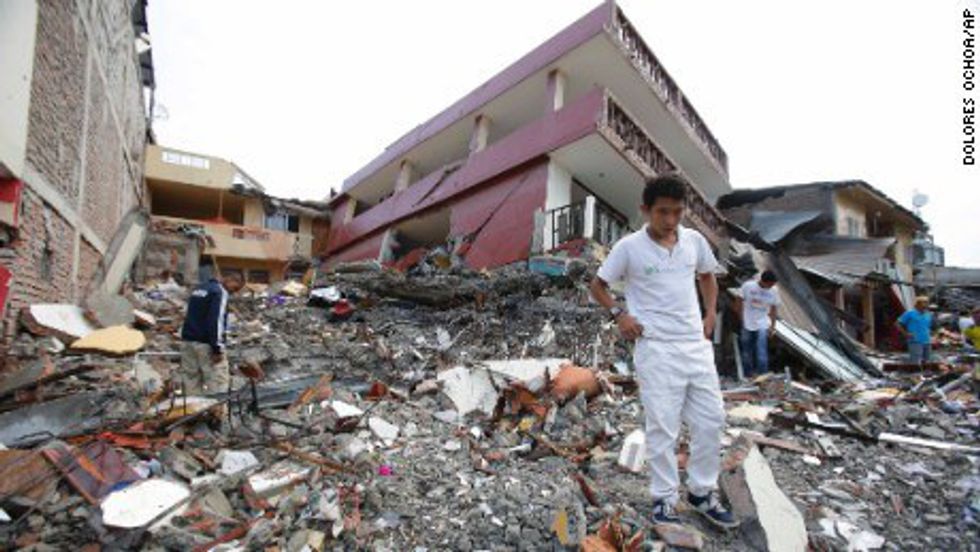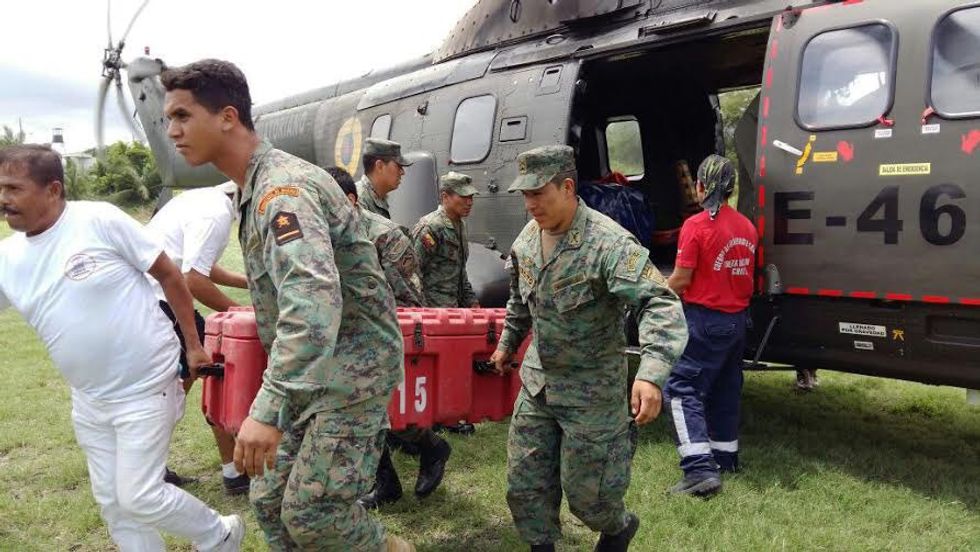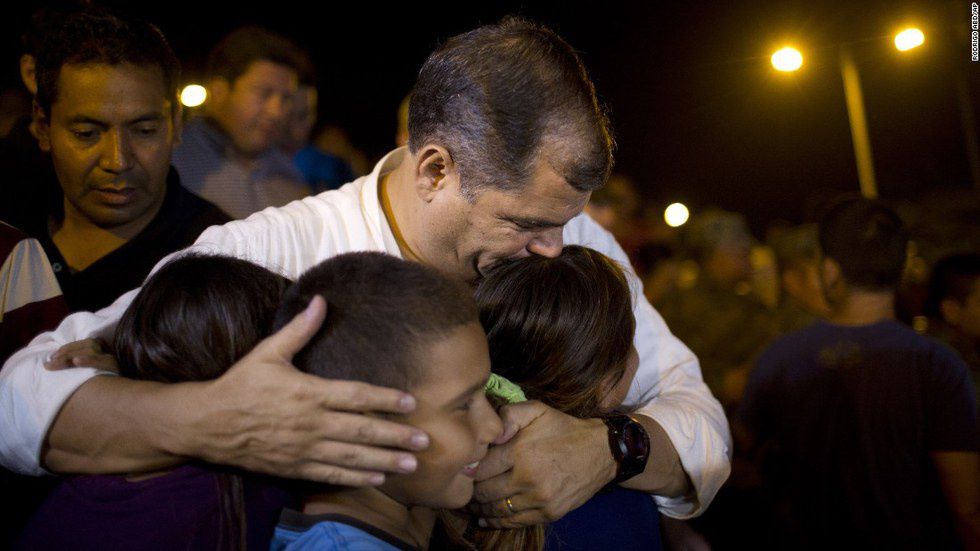"Natural disasters are terrifying – that loss of control, this feeling that something is just going to randomly end your life for absolutely no reason is terrifying. But, what scares me is the human reaction to it and how people behave when the rules of civility and society are obliterated." –Eli Roth
Natural disasters happen, and when they do, the entire world stands shaken for a day or two, but after that, we forget about them if we are not involved. Last week, Ecuador experienced the worst natural disaster it has seen in more than 50 years. Ecuador is not really a place you hear much about in the news. It tends to stay off of the radar as a smaller country than most of the places you think of when you think of South America. A 7.8 earthquake shook the entire country up. The search in finding missed love ones, friends, neighbors and even enemies is on.
People tend to come together when a natural disaster occurs. Ecuador has had not only one earthquake in the past two week,s but earthquake after earthquake with aftershocks that make rescue efforts that much harder.
Every year, somewhere in the world is shaken up by a natural disaster, and we try to come together to help those who can no longer help themselves. We always focus on the places close to us when something bad happens. Tornados in Alabama, floods in the Carolinas and Utah, wild fires in Washington. Floods, snowstorms, tornados and earthquakes have all occurred in the U.S., and it is not to diminish those when we talk about Ecuador. Unlike these natural disasters, though, an entire country was rocked and not only experienced, but felt the damage. Efforts are still occurring to help those who have been affected by these horrific disasters. But, are we still willing to spend the same amount of money or send the same amount of effort to Ecuador, a country that is far less vast and has far less wealth than North America and, more specifically, the U.S.?
More than 480 people were killed in this earthquake and more bodies are still being found. Thousands were injured. Ricardo Patiño, Ecuador's defense minister, thinks true recovery hasn't even begun and is going to take years to recover. Ecuador is already a country that does not experience much in wealth, or even tourism, compared to other countries within South America. The places that were more geared toward tourists were the places that seemed to be hit the hardest. This poses another problem for them. If the places that were hit were where the most money would be brought into Ecuador, how will they sustain? With less money coming into the country, especially the U.S. dollar (Ecuador also uses the U.S. dollar in most of the country), what are they going to do to about aiding there efforts? Less money means less aid they will be able to provide without outside help. Every new day in Ecuador is going to bring a new problem when dealing with the after effects of the earthquake, but aid will never stop.
If you are unable to go and give your help, please consider donating to the many organizations trying to guide the Ecuadorian people in their time of disaster. Please consider donating to UNICEF, WFP, AmeriCares or any other organization that is helping their aid.
























